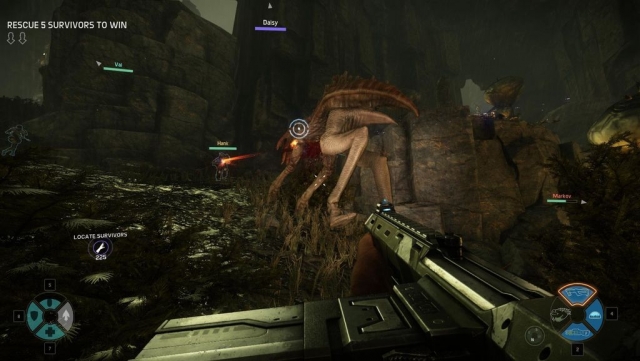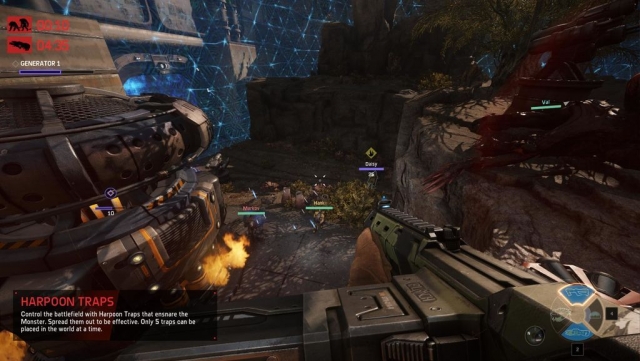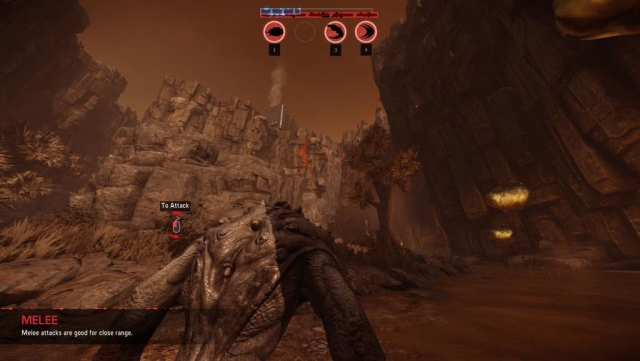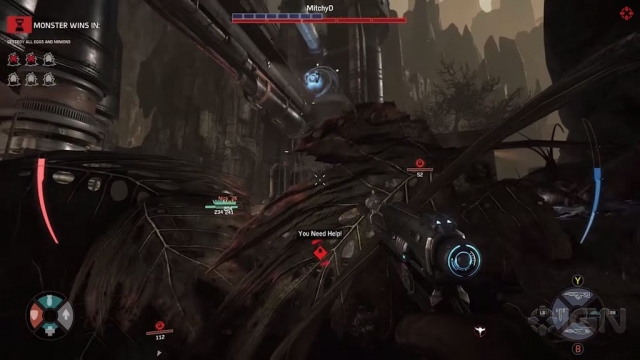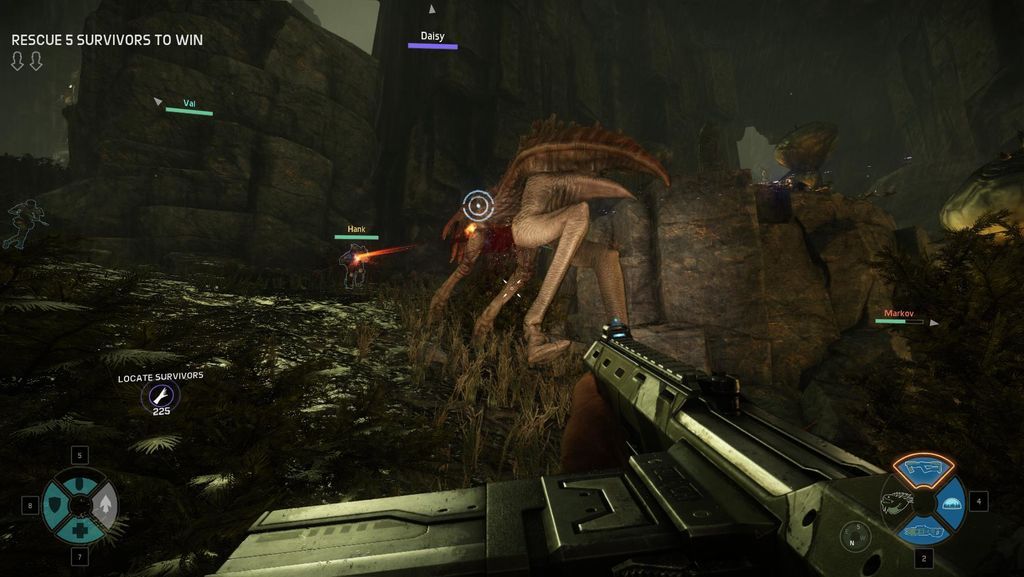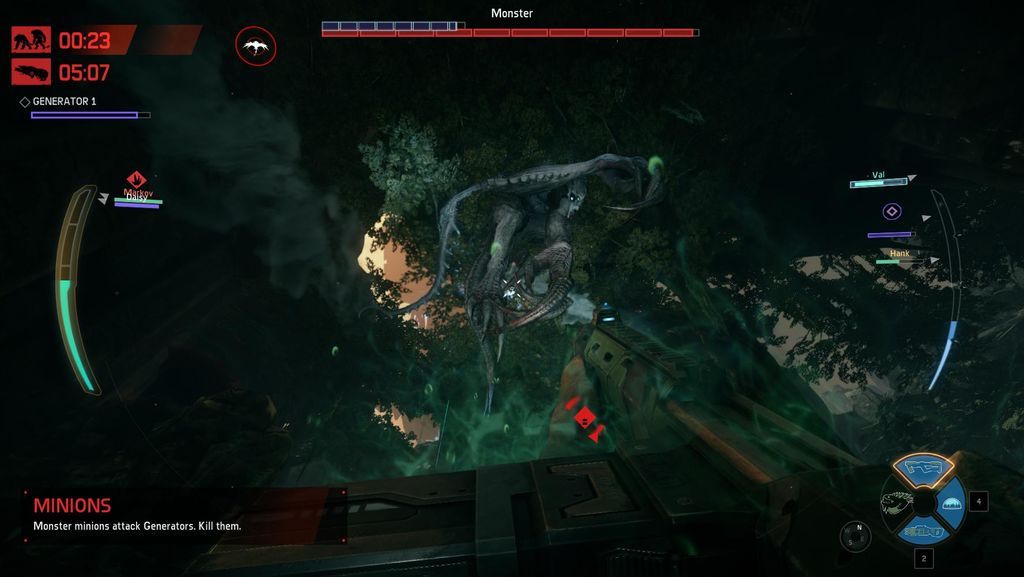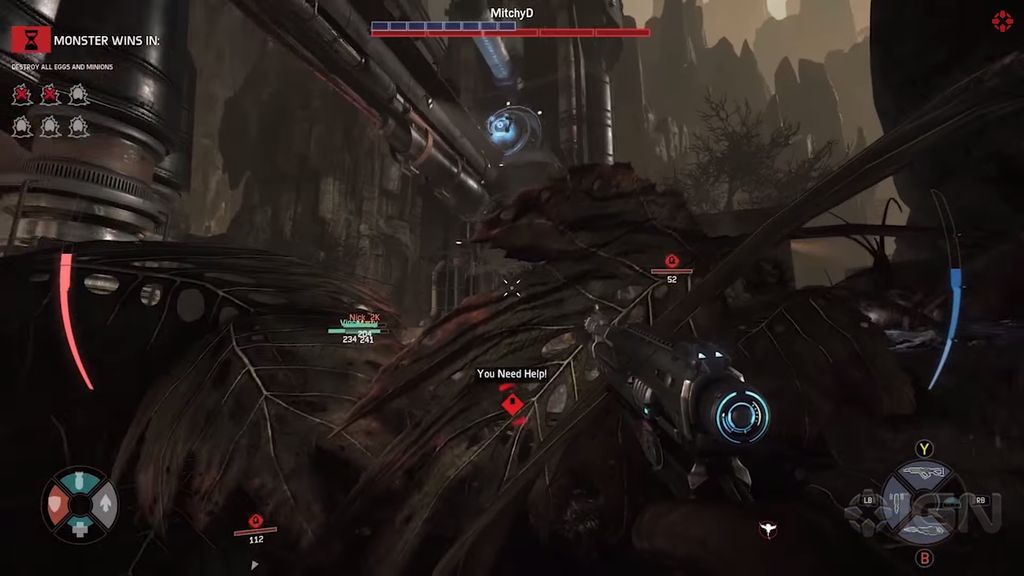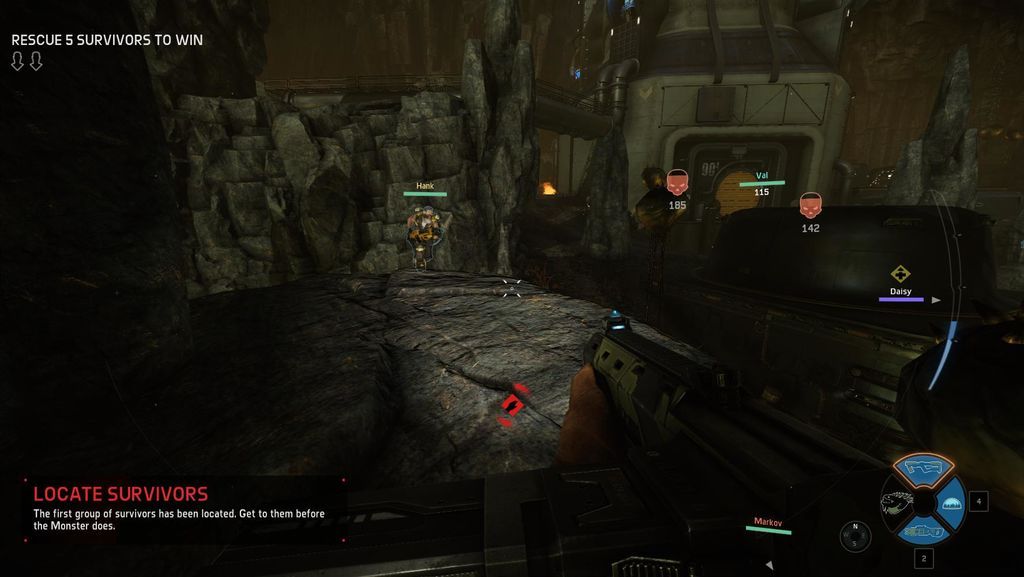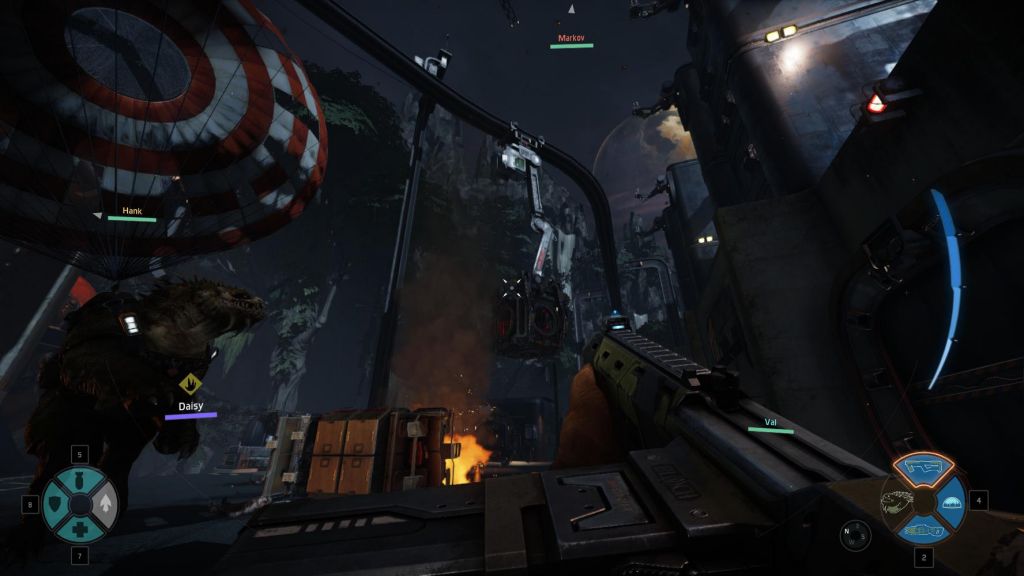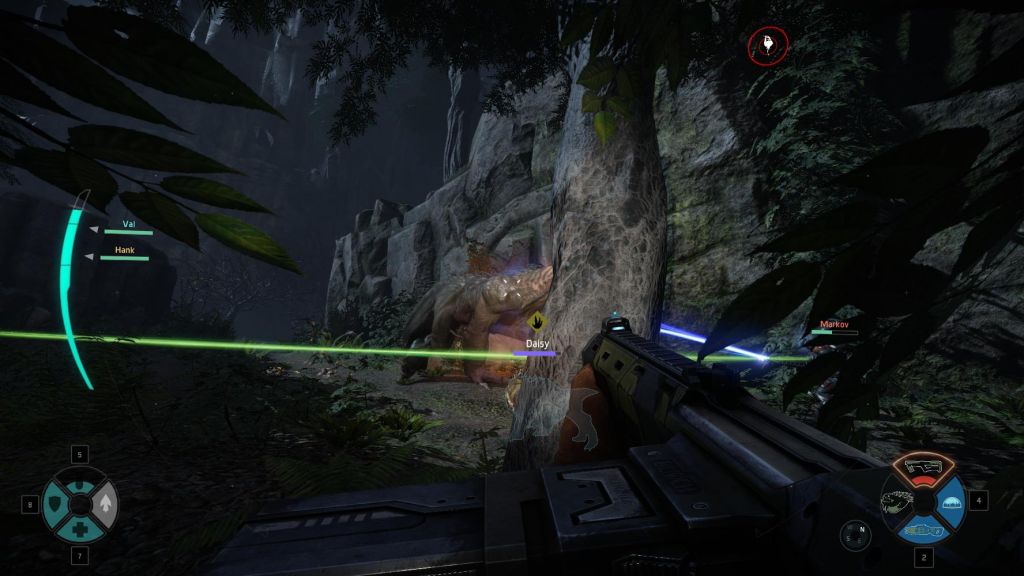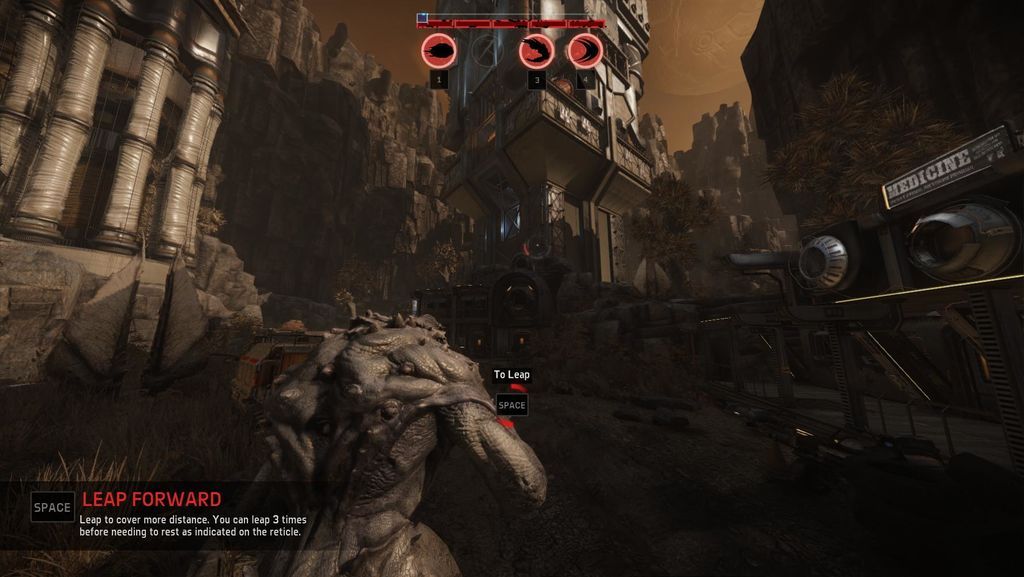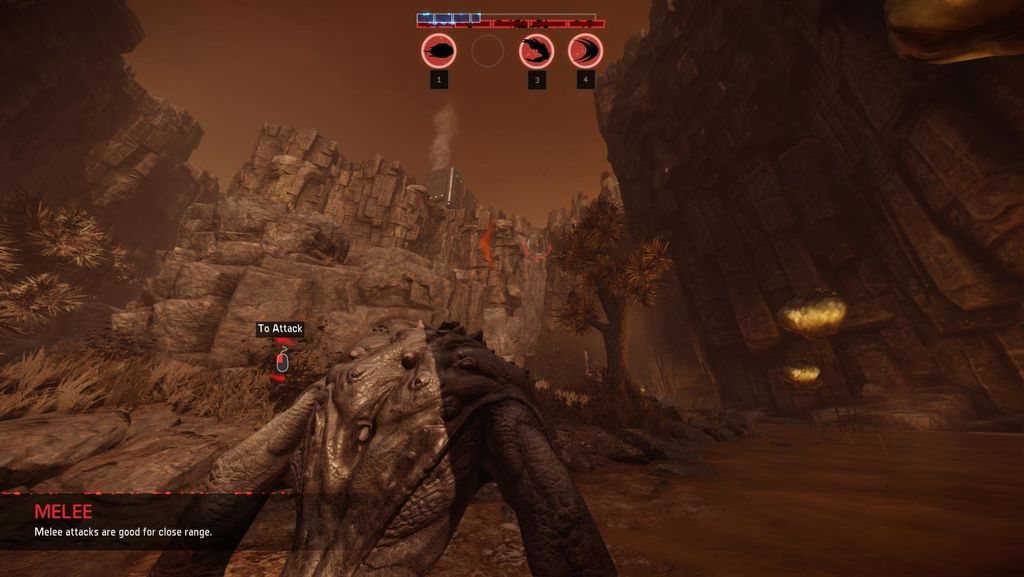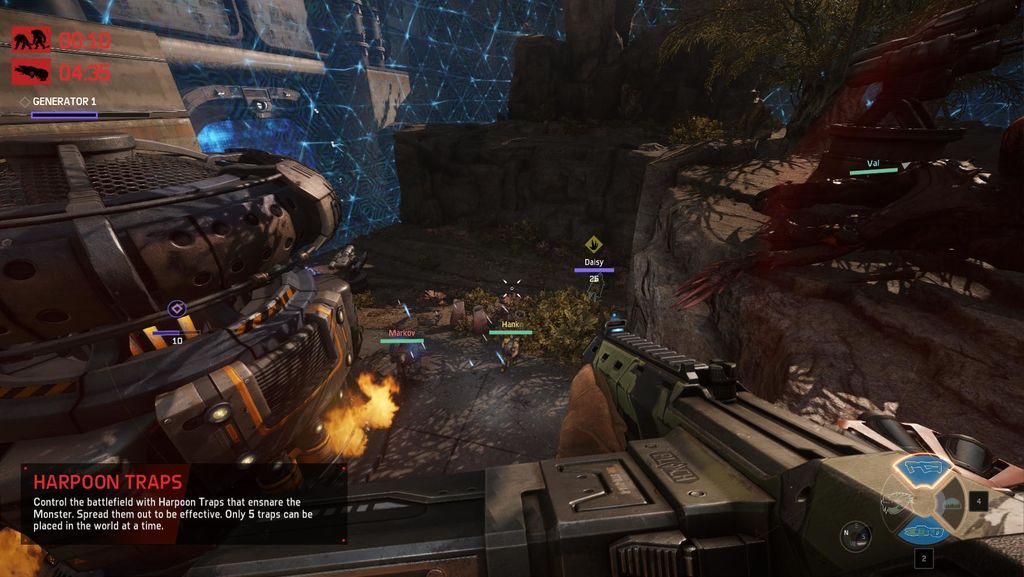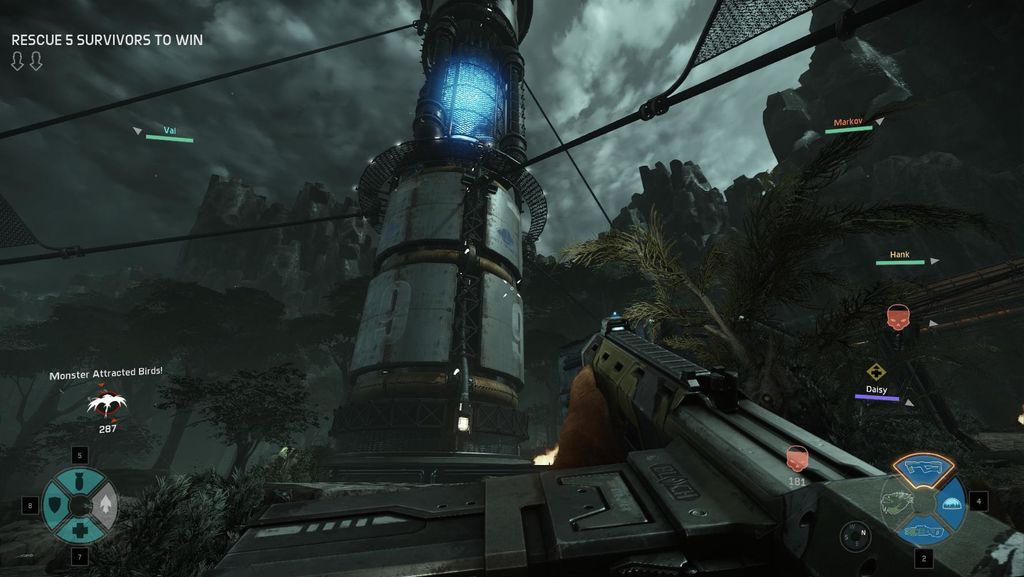Evolve
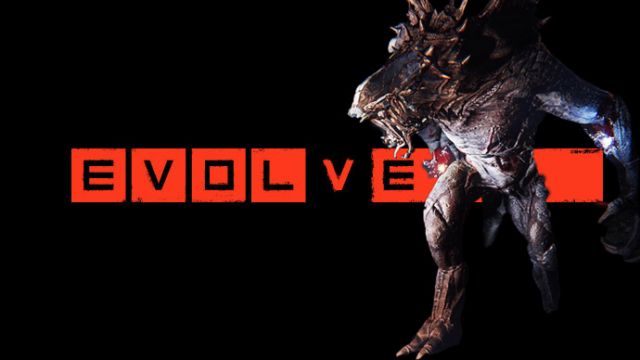
In 2008, Turtle Rock Studios made a substantial impact on both the horror genre and multiplayer games in general with Left 4 Dead. Evolve is a natural progression of what they accomplished with that series, as it takes the asymmetrical multiplayer they helped pioneer and carries it across time and space to a world of monsters and the quirky folks whose job it is to exterminate them.
As is the nature of asymmetrical multiplayer games, in Evolve, each team has unique goals.
One player takes on the role of one of the game’s three unique monsters — or four, if you grabbed the Behemoth DLC. The other team is comprised of four player-controlled hunters, each with their own unique arsenal and abilities.
The game, which takes place on Shear, a planet with a serious monster problem, could’ve taken itself seriously. Giant, murderous creatures have murdered enough colonists to warrant a planet-wide evacuation. In an effort to buy the survivors time to get off the rock, squads of very specialized hunters are sent in.
Tonally, Evolve knows what it is, and it relishes it. The developer clearly had fun creating this massive, sweeping world of men and monsters, but there’s an underlying silliness that really works. The monsters are massive and horrific, but the hunters are quirky and very much the archetypal “badass space marine” type.
Each of the four playable classes has three characters that can be unlocked by achieving certain feats. The Assault class is the classic tank type, capable of using their shield to take damage while dishing out some hurt of their own.
The Support class is, as its name suggests, a support class. They carry a special toolset that can aid their squadmates, including temporary invisibility for the entire team. The Medic is probably self-explanatory.
The Trapper is the most unique class of the bunch. They’re adept at finding the monster, as well as keep it from fleeing a fight with a Mobile Arena ability that drops an impenetrable barrier, trapping everyone inside.. Having a skilled player behind this class is key.
With the exception of the Trapper, the classes in Evolve will be familiar to anyone who’s spent any significant amount of time playing competitive multiplayer games. There’s certainly room for more inspired classes, but the game never pursues it.
The monsters are a different story. The Goliath can breathe fire, hurl boulders and charge at hunters or assorted wildlife. It’s essentially the monster equivalent of the hunter Assault class. This may be the most generic of the three monsters that come with the game, but it’s still a lot of fun to play.
From there, things get more interesting. The Wraith is the opposite of the Goliath, as it prefers to stalk its prey rather than go in guns blazing — or whatever the monster equivalent of that idiom might be. It can abduct unsuspecting hunters, teleport short distances and even summon decoys and supernovas. Mastering the Wraith can be tricky, but that’s easily remedied with practice.
If Evolve was a fantasy RPG, the Kraken would be its mage class. This Cthulhu-esque monstrosity can smite hunters with bolts of lightning and summon vortexes of damaging energy.
This is a game that revolves around its monsters. There’s a myriad shooters out there with classes and gameplay that’s identical to what Evolve has to offer, but none offer the experience of hunting down an intelligent monster with some friends, and fewer still give players the chance to hunt down others as terrifying beasts.
However, like most multiplayer-centric, full-priced games, Evolve has a content problem. If you don’t like playing with others, there’s absolutely no reason to get this game. Its single-player mode is the same as its multiplayer, sans other players. The story is barely there, so solo play is rendered to little more than a practice arena.
The multiplayer is where it’s at, and Turtle Rock made it so intentionally, just as Respawn did with Titanfall and Epic with Unreal Tournament III. They even announced back in November that every DLC map will be made available to all free of charge.
There are currently four game modes and about a dozen maps to play on. Hunt is likely going to be the most popular among them, as it tasks a team of hunters with finding and defeating a monster. The monster can choose to kill the hunters first, or scour the map, consuming its wildlife so it can evolve enough to destroy a relay.
The maps were designed to accommodate this mode, as everything from their layout to the way wildlife is used all makes for an incredibly fun game of cat and mouse. As the monster roams the map trying to find creatures to help it evolve, the hunters can lay traps and work together to take it out. If the monster is able to evolve high enough, the tables can turn and the hunters become the hunted.
If Turtle Rock could get away with shipping the game with this one mode, they probably would. It’s infinitely replayable and almost entirely unlike any other multiplayer game that’s out there right now.
A multiplayer game with one mode, even if it’s inarguably the best of them, would never work. That leaves us with three others to fill out the mode checklist for modern multiplayer games.
Defend is basically a twist on King of the Hill, in which the hunters must protect a refueling station from a monster and its minions long enough for the ship to escape. Nest flips that concept around by forcing the monster to protect eggs that have been scattered about the map.
The fourth and final mode is called Rescue. In it, the hunters must find and patch up injured colonists, which the monster has to kill, and the first to either kill or save five colonists wins. Of the four modes, Rescue made the least sense in terms of the game’s narrative. Why is a monster hunting down humans who are already on the brink of death when there’s more valuable prey literally everywhere?
Evolve isn’t perfect, but it is fun. I haven’t decided if it has enough content to justify its full retail price tag, so it’ll be interesting to see how long the community sticks with it. Giving away multiplayer maps will undoubtedly help extend its shelf life, but it remains to be seen if the general community will find it engaging enough to not get distracted by the plethora of other multiplayer games that are coming up later this year.
Reviewed By: Adam Dodd
Publisher: 2K
Rating: 75%
——————————————————————————–
This review is based on a digital copy of Evolve for the Xbox One provided by 2K.
 Game Over Online
Game Over Online